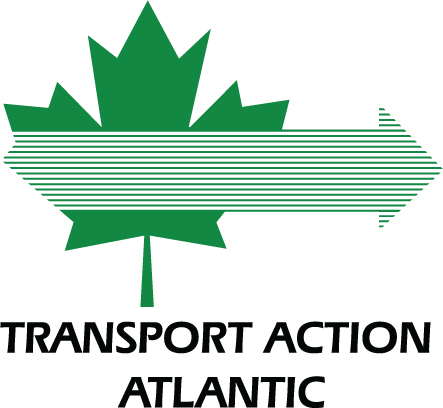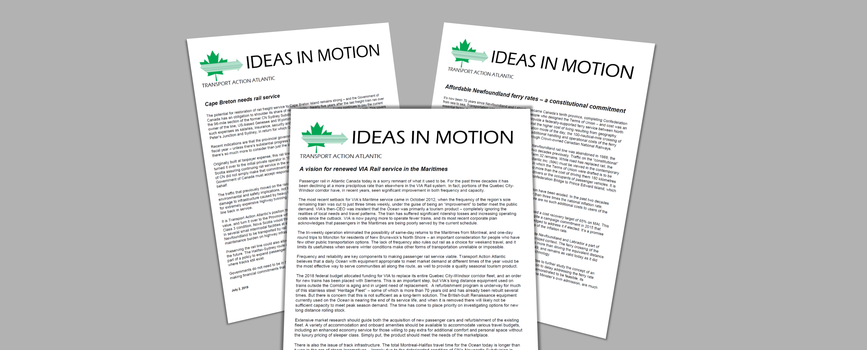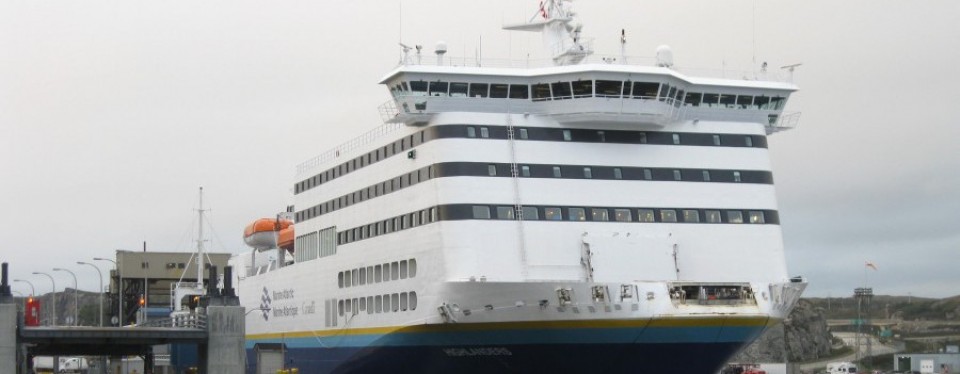Marine Atlantic’s MV Blue Puttees approaching the dock in North Sydney, NS.
The cost of moving passengers, autos and freight between Newfoundland and the mainland has been one of those perennial issues that seems to rear its head on a regular basis. But now the tale has taken a bizarre turn, with a private shipping company launching an action in the Federal Court of Canada alleging that Marine Atlantic’s rates for transporting commercial trailers between North Sydney and Port aux Basques are too low.
Oceanex – an intermodal transportation company operating three large vessels linking St. John’s with Halifax and Montreal – is alleging that the Minister of Transport has exceeded his jurisdiction in approving the current level of ferry charges. The company claims its rail and trucking competitors have an unfair advantage because of subsidized Marine Atlantic rates, and that those rates are gradually eroding its market share.
Marine Atlantic’s tariff is approved by the Crown corporation’s board of directors, based on a cost recovery formula set by Transport Canada. The subsidy history dates back to the Terms of Union negotiated in 1948 as the British colony prepared to enter the Canadian Confederation. The intent was to equalize transportation costs for the new province.
Using the circumstances of the time, Term 32 stipulated that the Cabot Strait crossing between North Sydney and Port aux Basques was to be rated as an “all-rail” movement. In other words, the cost of moving freight was to be equivalent to rail transportation over the same distance – effectively treating the ferry as a land bridge. Today’s Trans Canada Highway has replaced the railway in Newfoundland, but modernizing the intent of Term 32 should mean that the cost of transporting an intermodal trailer between the two ports by ferry should be no higher than that of hauling it over 185 kilometres of highway.
Transport Action Atlantic suspects that the current Marine Atlantic rate is already considerably greater than that figure, and that the current cost recovery ratio of 65% is higher than it would be if the spirit of the Terms of Union was being fully respected.
A similar sentiment was expressed by Canada’s new Prime Minister during last fall’s election campaign, in a response to then-premier Paul Davis. In his letter dated October 15, Justin Trudeau wrote:
“Liberals fully appreciate the importance of the Marine Atlantic ferry to Newfoundland and Labrador. It is not only a vital part of Newfoundland and Labrador’s economy, but also serves as an extension of the Trans-Canada Highway, connecting the province to the rest of the country. With the Conservative government fixated on cutting expenditures at all costs and demanding an unreasonable percentage of cost recovery from Marine Atlantic, the crown corporation that runs the ferry was forced to increase its fares by a total of 11 percent over the past three years.”
TAA has discussed that commitment to reasonable ferry rates with a number of Liberal MPs since the election, noting that charges have more than doubled in less than 20 years – outpacing by far the cost of living index. Meanwhile, tolls on the Confederation Bridge to Prince Edward Island – which also represents a constitutional commitment of the Government of Canada – have increased by less than 32 percent.
The MPs have been asked to remind the Prime Minister of his campaign commitment, and to at the very least set aside the latest announced Marine Atlantic rate increase pending a full review of the issue.
The challenge mounted by Oceanex, however, represents an even more ominous threat, because the company is in effect asking the court to overrule the Terms of Union. If they win their case, the inevitable result would be a dramatic rise in the cost of living in Newfoundland and Labrador.





